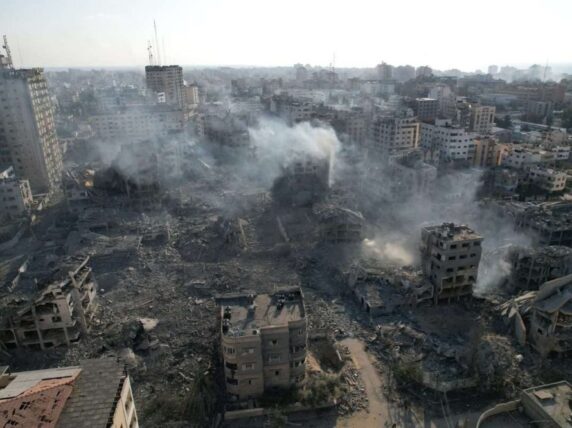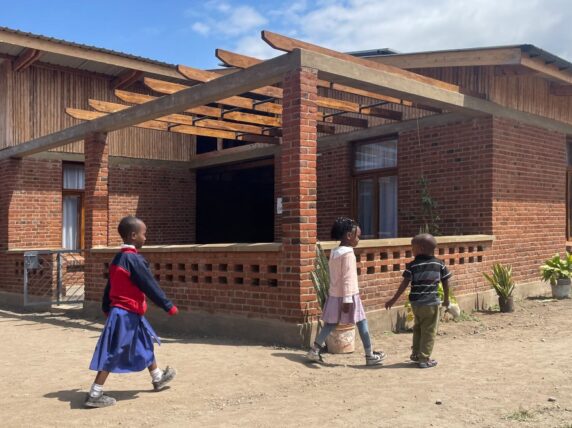It is time for a Torture-Free Trade Treaty
A few weeks ago in New York the United Nations Special Rapporteur on Torture, Dr Alice Jill Edwards, presented her newest report to the General Assembly. The report includes a study of the global trade in weapons and equipment used by law enforcement to commit torture and other ill-treatment.
Although torture can be committed using many different tools, people are often tortured with specialist equipment. The Special Rapporteur has found companies from all world regions producing the weapons and equipment used in human rights violations, including for the abuse of protesters and those in detention.
In her report, the Special Rapporteur has identified two categories of law enforcement equipment used for torture and other human rights violations.
- Category A: equipment that is inherently cruel, inhuman, or degrading. The Special Rapporteur recommends that all manufacture, trade, and use of this type of equipment should be completely prohibited. This category includes batons studded with metal spikes, body-worn electric shock weapons (like belts that deliver electric shocks), and abusive restraints such as thumbcuffs.
- Category B: equipment that does have a legitimate law enforcement purpose when used in accordance with international human rights standards, but that poses a risk of being used for torture. The Special Rapporteur recommends that the trade in such equipment be controlled to ensure that it is not in the hands of those that will use it for torture. This category includes standard batons, standard handcuffs, and certain kinds of chemical irritants, such as pepper spray, and their delivery mechanisms.
In presenting these two lists of equipment, she has gone beyond previous statements from other Special Rapporteurs and has made a significant contribution to the ongoing campaign for an international instrument to address the trade in goods used for torture.
The Special Rapporteur has found that between January 2018 and June 2023, over 300 companies in at least 54 countries manufactured or promoted inherently abusive equipment that should be prohibited (Category A).
Owing to the scale and complexity of the law enforcement industry, as well as the lack of regulation, it is not possible to count the number of companies making law enforcement equipment types that can be used in compliance with human rights standards but that are often misused for torture (Category B).
Instead, the Special Rapporteur’s research found companies that manufactured or promoted such equipment were active in at least 63 countries in all world regions between January 2018 and June 2023.
Research by the Omega Research Foundation has confirmed that the industry is spread across the world and is out of control. There is a clear need for a global response and there is a vital role for policy makers and civil society in the UK to play.
The UK is one of over 60 states that are members of the Alliance for Torture-Free Trade. Alliance member states have committed to taking steps to address and restrict the trade in goods used for torture. We are calling on the UK government to support and engage with the international process to develop a Torture-Free Trade Treaty. To learn more about the process to date, see Omega’s dedicated webpage.
The UK already has some controls around the trade in goods used for torture, both those that are inherently abusive and those that can be misused to commit torture and other ill-treatment. The UK is therefore positioned well to engage with the process for international binding controls. More information on the UK’s existing approach is available in the joint submission to the Special Rapporteur’s report made by Action on Armed Violence, Amnesty International UK, Omega, Saferworld, Shadow World Investigations, and United Nations Association UK (all submissions made to the report are available on the UN website).
In her report, Dr Edwards has called for the creation of an international torture-free trade instrument, something she describes as potentially a “significant victory for human rights”. In this, she joins the Torture-Free Trade Network – a group of civil society organisations from around the world – who are calling for a Torture-Free Trade Treaty. Members of the Network have signed the Shoreditch Declaration, which remains open for signature.
The Special Rapporteur’s report is a key moment in our campaign and we encourage a diverse range of civil society, human rights organisations, and NGOs from across the sector to take this opportunity to join us in calling for a Torture-Free Trade Treaty.
Category
News & ViewsThemes
Economics and trade



